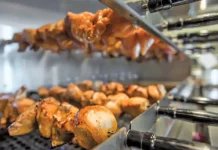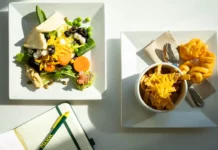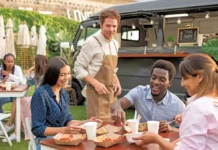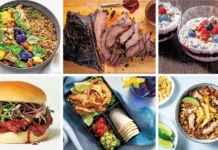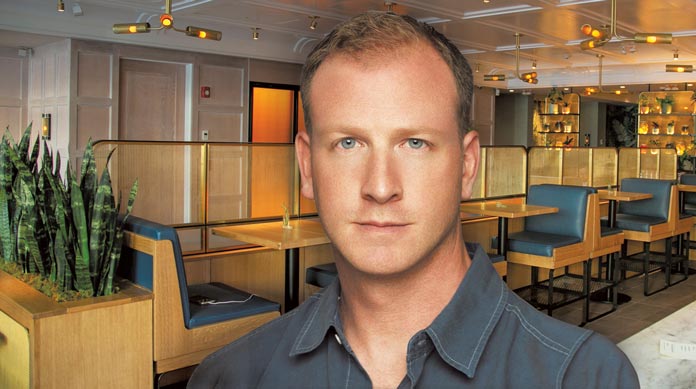
CO-CEO, Aurify Brands, New York, NY
Navigating the first half of 2020 has been no easy task for Metro New York’s restaurateurs. Total Food Service wanted to find an operator that has a feel and vision for not just the challenges of Manhattan, but an overview of the entire Tri-State area. For Andy Stern and his partner John Rigos of Aurify Brands, they have a unique perspective of what the industry has experienced with the pandemic and what lies ahead.
As former Five Guys and Dunkin’ Donuts franchisees, and now operators of a portfolio that includes Melt Shop, Little Beet and Fields Good Chicken, Andy Stern was able to share with Total Food Service all about his lessons learned and what lies ahead for Aurify Brands.
Looking back, how did you navigate the first and second weeks of March?
They were intense. The last four months have been the hardest I’ve worked in my career, but also the most rewarding. Particularly, those first two weeks were probably the most difficult I’ve ever dealt with. The focus for us was staff, both from a job security and health security standpoint. We closed everything, and because of how quickly the government reacted with the unemployment stimulus, we made the decision to terminate all of our hourly workers so that they could have access to the stimulus program. Beyond that, we had about two hundred people on salary that we decided to keep on, and make part of the solution.
So what was that solution?
Our first thought was how were we going to chip in. From that, one of our immediate focuses became providing meals for first responders. We were incredibly successful in this regard, providing upwards of several hundred thousand meals, mainly in NYC. We also integrated takeout and delivery systems into many of our brands.
One luxury we have in this industry, which we constantly reminded ourselves of, is that you can’t just opt out of food. Making a decision to eat is very different than deciding not to go to the movies or take a cruise. We don’t have that option with food because people need to eat. With this pseudo safety-net in mind, we realized that our solution was going to be heavily tied to what the main means of consumption were going to be moving forward, both short and long-term. The way we see it, although off-premise consumption is higher than it has ever been, this will be tempered a bit when we begin to stabilize.
Do you think Uber Eats’ recent acquisition of Postmates will shake up the industry in this regard?
I don’t actually, and I don’t believe that deal was one hundred percent driven by the pandemic. Both of their models were broken. They didn’t make much money before and still don’t even now that they’re a consolidated entity. As long as they don’t own the full vertical stack, the way a company like Domino’s does, they won’t be terribly successful. The only path those big aggregators can really take, is to start selling their own food. I wouldn’t be surprised at all if we see those aggregators begin to buy restaurants.
What was your read on PPP and the ability of the government to bail out and prop up the industry?
The biggest problem that everyone had was with business interruption insurance, and that insurance not coming into play with COVID. This was the real killer. I would have thought that the government would have propped up the insurance industry by backing the business interruption claims. That should have happened, because that would have saved a lot of these businesses.
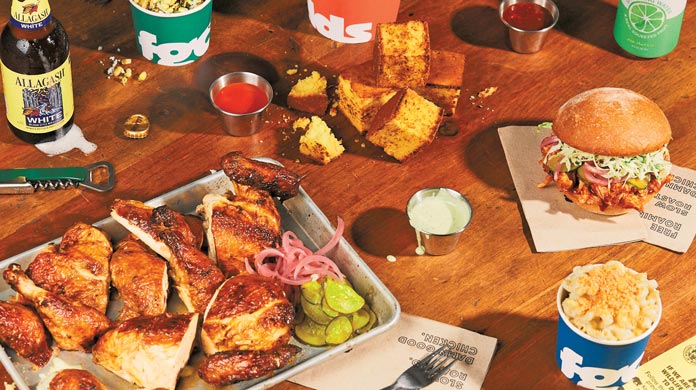
What impact will COVID-19 have on the leases that restaurants negotiate with their landlords?
Another important aspect of this that hasn’t really changed regards a restaurant’s biggest fixed expense: rent. A lot of landlords thought and hoped that this COVID situation would be a fleeting moment, so rather than share the pain, they refused to make any accommodations. I think this is about to change. With COVID, the real estate business is becoming a buyer’s market.
With so many people fleeing and places going out of business, in Manhattan alone, you’ll have four, five, six thousand vacant restaurants, not to mention retail. With this being the case, all of a sudden there’s a conversation being had with landlords that looks a lot like the 2008 and 2009 recession, which is ‘Please come to my building and I’ll pay you to be there.’ I completely anticipate revenue based leases going forward, it has to happen.
In the middle of all this, you found a wonderful opportunity in Le Pain Quotidien (LPQ). How did that come to happen?
Before we crossed paths with LPQ, they were struggling with debt and mismanagement. Because of this, they weren’t in a great position to deal with the trouble that COVID brought. When they eventually called us up and inquired if we’d have an interest in helping, we said what we always say: “If there’s a great brand that’s a bad company, we’re very interested.” As it turned out, we loved the brand, and decided to step in.
When it comes to what we do as a company, it’s not as much about the financial side of the equation. It’s more about if we can continue to build a company where there’s a lot of opportunity for people to change their trajectory in life, then we want to do what we can to create those opportunities. The best way to do that is through great brands.
What stuck out to you about LPQ?
It’s just a wonderfully classic brand. It sits in that bakery and coffee segment that we love and it doesn’t compete directly with Starbucks. Its’ closest competitor right now is probably Panera, but I think it’s a touch more elegant. Obviously we think very highly of Panera, but in my opinion, Le Pain Quotidien is just a notch above. Fortunately, LPQ has a fantastic and very loyal fanbase, so we have a lot of support. People really love the brand and experience.
In a rush to get your thoughts on managing through COVID, we forgot to share your background and how you got into the restaurant business.
My partner John and I had worked together in a previous life in technology. We worked on two tech companies right out of Vanderbilt in Nashville. One of the companies was sold to Idealab in California and the buyer knew John. We’ve been together ever since and then the tech boom came and went and that was really a gut punch for me. I actually moved to Colorado to learn how to fly fish, but I was back and forth to New York. John and I were investing together and we bought the Subway franchise in the town upstate that he bought a home in Walton, NY. We thought it would be a passive investment. We found out quickly that it was hands on, so we bought several more. We also discovered that we loved the business for its ability to have an impact on a community through your customers and the people working for you. It’s an amazing business in that it can really change people’s lives by building careers.
How did life as a Subway franchisee morph into a multi brand operator?
We were attracted to the opportunity that Dunkin offered. We did our homework and found that you couldn’t buy in the Northeast. We also saw something else, that the more you moved away from their Quincy, MA headquarters, food began to replace coffee as the major source of revenue. Our play was to buy into a franchise on Long Island. Dunkin’ offered us a great opportunity to grow. With Jon Luther running the show, we found our way on their franchise council. We wanted more which led to us buying the rights for all of Washington, DC. This was in 2005 and my first son was born, so needless to say my wife thought I was nuts. It was a great time to grow with funding sources like GE putting up 100% of construction costs. We built it out to three dozen Dunkin’s and Baskin’s. We brought in a family office investor and we thought everything was golden, but it wasn’t. We simply were not ready to grow as fast as we did. Our goal was always to do our own thing but we learned how much from our franchise partners.
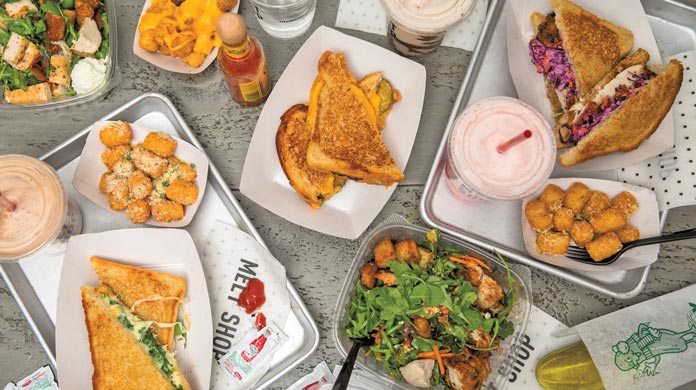
What is a family office investor?
It is a wealthy family with investments that hire a team to invest their family money.
We held on to the Subways for a while and then sold them. We didn’t have as much control as we thought. Very frustrating, because we were working 100 plus hours a week and we have someone looking over our shoulders.
To our credit, because both of us had really young children, we took a risk and handed back the keys and said here’s your 36 Dunkin’/Baskins back. The hard part was that we had built a terrific team.
What was the next step post-Dunkin’?
We knew we had a great team, so we went looking for the next brand opportunity.
We connected with Five Guys through Sam Chamberlain, the CEO and the former NFL player Mark Mosely who was handling their franchise sales. I knew Sam from my tech days and when their Manhattan deal fell apart, we stepped in. We took the train to DC, went to one of their units, had a burger and then went to meet the founder Jerry Murrell. They turned out to be amazing partners, an honest family and the best thing that ever happened to us. We made the deal for Manhattan and then went looking for the right investor. A friend of a friend introduced us and fast forward, he’s still our key investor today. Best thing that ever happened, he let us run our business.
What were the lessons learned from the Five Guys experience?
After 13 years in it, we sold out about a year ago. We wanted a Street not an Avenue so we started in a location on 55th Street in Manhattan that nobody wanted. We had a guy doing real estate for us but we typically find our own locations. We’ve learned that it’s an art not science. It’s interesting, you know where not to move than where to go. We lived through a fire in the first store, closed and got back on our feet. We started building stores through the recession of 2008 which turned out to be a blessing in disguise in terms of real estate prices. We spent ‘08-09 signing leases and focused on Manhattan and then bought four stores in Brooklyn.
After being a franchisee for so long, what finally made you decide to leave that behind and focus more on creating your own brands?
Owning franchises is a great business, and we learned a lot doing it. But at the same time, we always knew we were just in the franchise business to learn. What we are at heart is entrepreneurs, and we like to think about things like strategy, positioning, and brand. You don’t do any of that as a franchisee, which is in part why it’s a good business. You simply operate and execute, and leave all of the creative aspects to the franchisor. They tell you what to do, and if you do it, it works for the most part.
At Aurify Brands, we are not only able to work on the creative aspects, we are also able to directly affect the people that work for our brands. To this day, part of our mission statement is to transform lives with upward mobility where there traditionally is none, and break cycles that have permeated the industry for decades. Our goal is to invest in our employees and help them grow and make careers.
Talk about the type of people that you look for as you have built the Aurify Brands team?
In 2010, we began with the Melt Shop concept. We started with Spencer Rubin, a 23-year-old partner who we actually had originally talked to about a high end donut concept. He was actually our project manager when we built out the first Five Guys store. The kid slept in the store to get it opened. We’ll take that attitude any day over experience. The Melt Shop is an amazing brand that he has built into 20 plus stores.
What is that word called “ideating” that you created?
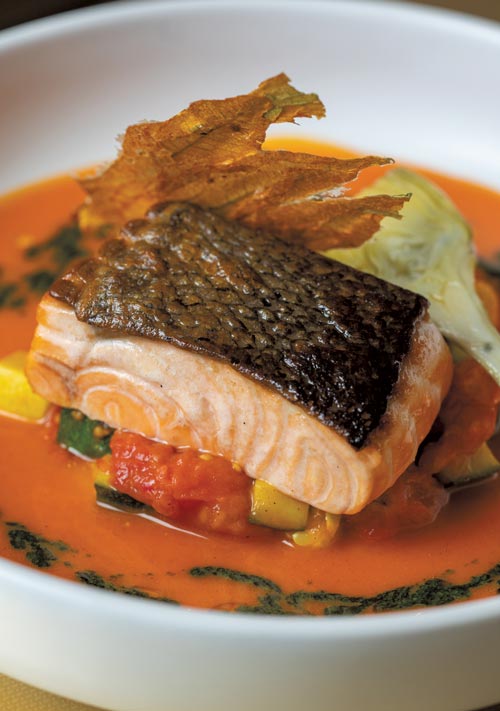
We had taken a trip out west and found of all things a lemonade concept that we liked. So we started “ideating” with our friend Scott Feldman who has become the agent for many top chefs. I told him that we needed someone who could do healthy food, so he brought us Franklin Becker. He came from a steak background but has a child on the autism spectrum who he cooks healthy food for. It was a match and Little Beet was born. We were able to ride the beginning of the wellness wave and didn’t have Sweetgreens to compete with.
At the same time we found this great concept on the West Coast with three Chinese brothers and their Dad that escaped from China. It’s this really cool Baha style of cooking, where you add sauces to create these wonderful fish tacos. Great quick serve price point of $8-9. When we met with them, they had built it to 62 locations. We cut a deal with them and opened a store in Manhattan. It did ok, but it was way too time intensive. We did something really unusual as we tried to figure it out. We had brought in a separate group of investors and told them that we were going to pivot and try something else and if they stayed with us, we would make them whole. We could see that Little Beet was killing it, so we decided to take the whole space and build out Little Beet Table as a full restaurant concept. In three weeks, we reopened first for dinner and then for lunch and it was a hit.
What went into the choice of Chicago as the second market for Little Beet?
We brought in a real estate guy to do some market surveys for us and Chicago was a match for a number of reasons. To build the brand, we knew that we had to go in with Little Beet and Little Beet Table at the same time. We were set to go and frankly we got cold feet. One tough landlord would not let us out of the lease so we have an orphan store in Chicago that we are going to have to figure out. We have of course opened here in Greenwich, CT and most recently in Chevy Chase, MD.
As someone who has worked in the industry in both urban and suburban environments, how would you compare them?
There’s definitely less room for error in suburban environments, and by that I mean the density in the suburbs is much lower. Wanting to make everyone happy is the goal, but realistically that won’t happen and you’re going to lose customers on occasion. If you lose one in the city, there are thousands more. If you lose one in the suburbs, word of mouth travels fast. This means in the suburbs you really have to come out swinging, or things can go south very quickly.
To learn more about Andy Stern and Aurify Brands, visit their website.


















